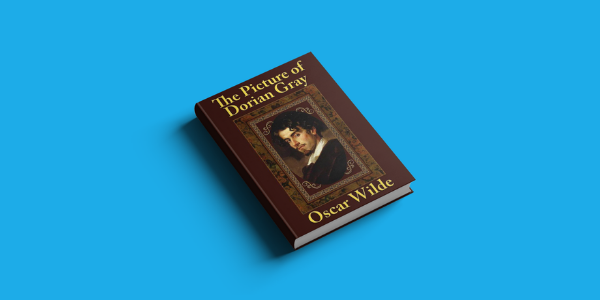The Picture of Dorian Gray and What It Tells Us About Today

The Picture of Dorian Gray and What It Tells Us About Today by Saoirse Exton
Recently I finished reading the 1891 extended edition of Oscar Wilde’s “The Picture of Dorian Gray”. I was expecting a mildly gothic tale about morals and whatnot but instead I was plunged into a world that is all too familiar in today’s world. Scarily familiar, almost.

Oscar Wilde
For those who don’t know the story, Dorian Gray is a rich, beautiful and did I mention rich gentleman who lives in London throughout the book. He begins as the typical naive, innocent character that you see in books of the 1800s but after meeting and becoming enamoured with the eccentric and manipulative Lord Henry Wotton, his entire personality changes. A painter and a friend (Basil Hallward, as he’s called) creates a portrait that captures Dorian’s beauty perfectly and in his naivety, he wishes under his breath that the painting would retain all the marks of old age that his own face should contain. Amazingly, this works. He becomes cruel and cynical and every opinion he speaks is essentially Lord Henry’s. It’s extremely entertaining to read about; someone’s descent into insanity.

The Picture of Dorian Gray
I found the imagery fascinating. Imagine selling your soul so you could stay young forever and yet every time you looked in a mirror, you would see your old age, your decrepit face, sagging cheeks and eyes and wrinkled folds. Then I was reminded of the imagery we have in today’s world. The contrast is startling.

Today, we have our idols. We have these beautiful people that we artificially adore and deny any wrongdoing because of their beauty. They are our idols, our goals, even to the point that we will buy everything they sell just to make ourselves like them and yet different. Oftentimes, we pride ourselves on following and slowly becoming like the person we follow.
In Wilde’s novel, Dorian Gray’s beauty means that he has several other young men that essentially become him. They follow him around and copy everything that he wears and everything that he does, even if the things that he does are not deliberate. They adopt him into themselves until he becomes the subject of controversy and suddenly they disappear from the scene.
These aforementioned beautiful people are like Dorian Gray. He represents that group of people that sell themselves to convince their followers that everything they do is natural and the way that they look is natural, even after years upon years of refinement and paying thousands just to alter minute cosmetic ‘problems’.
In conclusion, it is utterly fascinating to see this similarity between a piece of literature that was written 129 years ago and today. The piece isn’t necessarily pre-emptive. It doesn’t suggest that in a century and a bit every public figure will be reminiscent of Dorian Gray’s character, but it is striking to see that humanity never really changes and that this is the normality of our species. It is vital that we break ourselves apart from others who we look up to, because there’s enough space in the world for every person to take a step back from others and become an independent entity. This is going to sound cliché but, be yourself, realise yourself and your opinions and make your own experiences. Living vicariously is a waste of a life.
